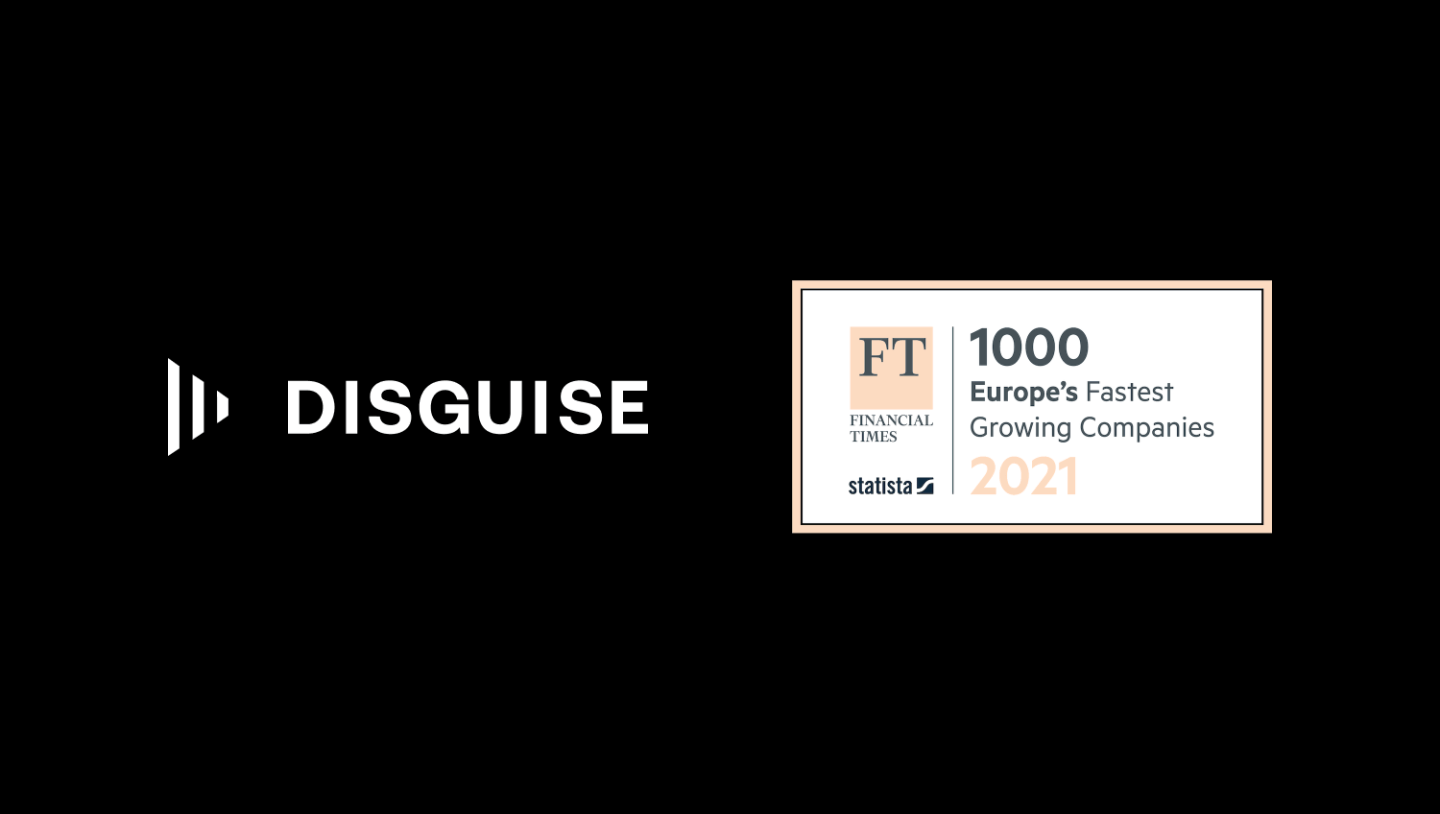Disguise recognised in the Financial Times’ 1000 Fastest Growing European Companies
Virtual Production
Company
Disguise Platform

Disguise secured a spot among Europe’s Growth Champions in the fifth edition of the FT 1000.
The annual report from the Financial Times and Statista acknowledges rapid, sustainable and organic growth and provides a snapshot of Europe’s most promising growing businesses in the weeks before coronavirus took hold.
The FT 1000 lists the top 1,000 companies in Europe that have achieved the highest percentage growth in revenues between 2016 and 2019.
The announcement comes less than two weeks after our inclusion in the Sunday Times HSBC International Track 200 recognising British companies with fastest-growing international sales. To be ranked within two such prestigious leagues is a true testament to the core values our teams live by - driving innovation and supporting our customers in delivering spectacular visual experiences.
Following the accelerated development of our extended reality (xR) solution, we're continuing to invest in expanding our production pipeline and support capabilities to meet the growing global demand for xR. These include significant software features developed to further support Disguise’s integration of Unreal Engine for virtual production, as well as the launch of our rx system for hosting third party render engines, enabling new possibilities for scale-out rendering.
We're incredibly proud to be named one of the fastest growing companies in Europe. This achievement is a credit to the whole Disguise team, whose hard work resulted in a record year of revenue in 2019 and weathered the storm of the Covid-19 pandemic throughout 2020. The business has continued to thrive in unprecedented times, releasing a host of innovative products and enabling the entertainment industry to make new strides. We are excited to continue growing in the coming years and creating unique futures in virtual production.
Disguise CFO
As we look ahead, our commitment to building the next generation of collaborative tools remains essential, while expanding into new markets and further democratising our innovations to allow anyone to realise their creative vision.